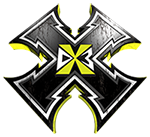Off-Season is Training Season
Off-Season training is the time to really focus on strength and development.
Always keep in mind fundamental form and neurological development is more important than allowing poor form in an attempt to make greater gains. Early cognitive understanding with applied physical application will prove to be extremely valuable in the advancement of your off-season program. All too often coaches get overly concerned with expediting weight training with a sense of urgency, due to a lack of time, and neglect the basic necessity of teaching and good-old fashion fundamentals. If an athlete cannot do a proper push up or a body weight squat with proper form there is no reason to put them in a weight bearing situation. Never underestimate the value of simple body weight exercises and teaching proper form in your program; it can save you time, headaches and set-backs due to injury down the road.
Incorporating body weight exercises with traditional lifting in conjunction with Olympic progressions and full Olympic lifts provide a great foundation for an all-around strength program. In addition to traditional style lifting we have found the implementation of unorthodox training proves to be both psychologically and athletically beneficial. Adding med balls, bands, suspension training, kettlebells, tire flips, boxing, etc. to an off-season program provides differentiation and creativity. Additionally, we have found that with the allocation of one day a week to high intensity metabolic anaerobic intervals (20-30 second bouts with short rest) will condition, discipline and neurologically benefit yours athletes. These intervals just as your traditional lift intervals should be timed in accordance to work rest ratios that mimic that of your sport.
There are some key factors to consider when starting any program especially off-season:
- Total bouts on the body- all in school and outside school activities in a week
- Stress- total cumulative stress considering all facets of training, practice, skill, strength and conditioning, in addition to non-activity stress (school, social, home, etc.)
- Time frame- number of weeks or months until season begins
- Strategy- what are your goals based on previous results, current development and skill levels
- Progression- Incorporate load and unload workouts leading to maximum gains
- Emphasis- Focus on strength and development early and more on conditioning closer to season
- Balance- Alternate double limb and single limb compound movements
- Differentiation- Alternate barbell, dumbbell and machine lifts with traditional training and include unorthodox training
Off-season also provides the opportunity to emphasize the importance of proper nutrition, good sleep habits, avoiding overtraining and overall preparation. Do miss out on the best opportunity you have to get better. Off-season is an athlete’s best friend, get to know it!
